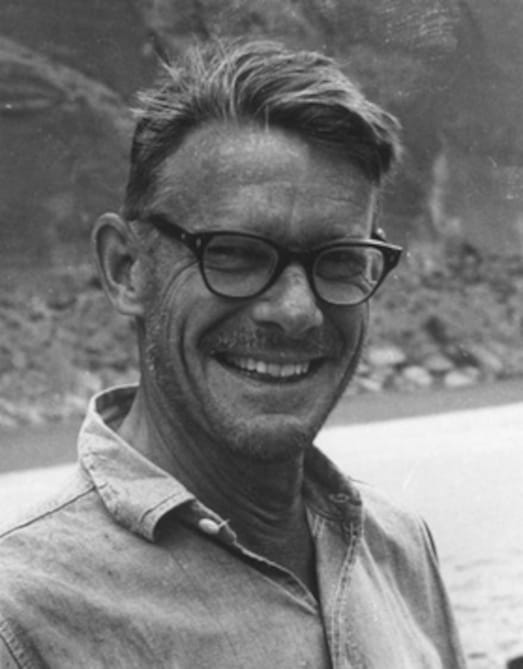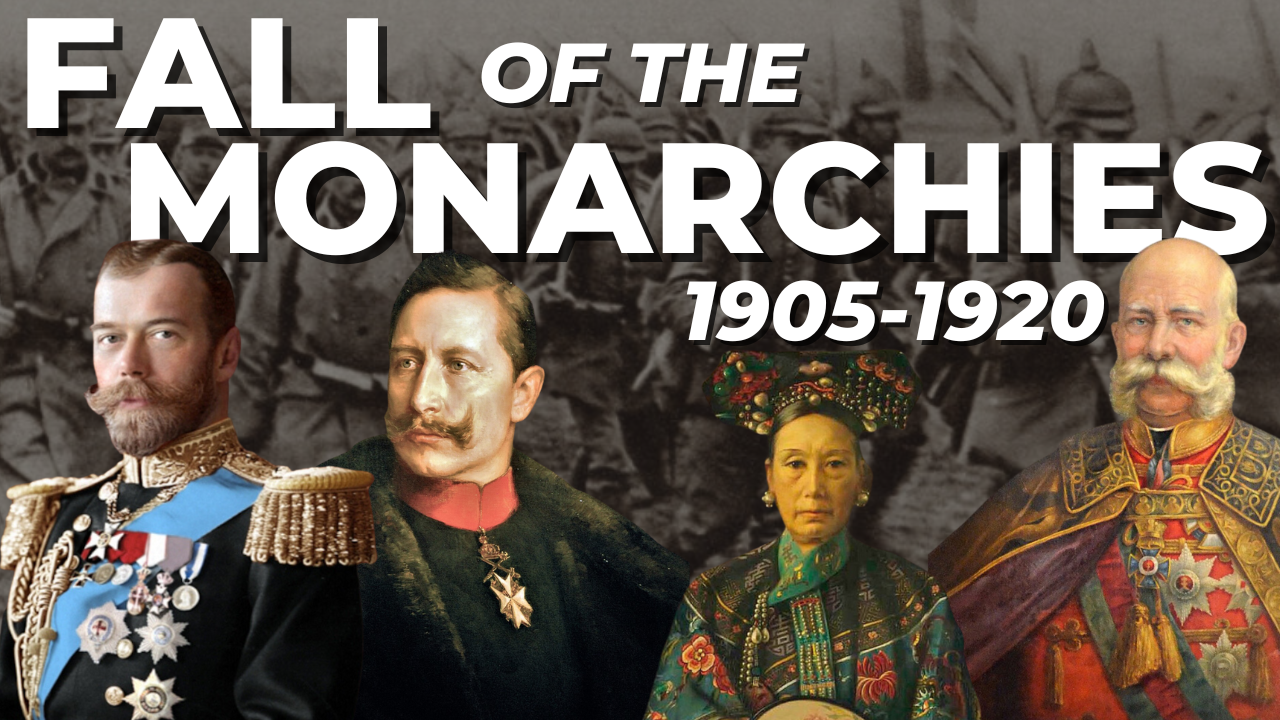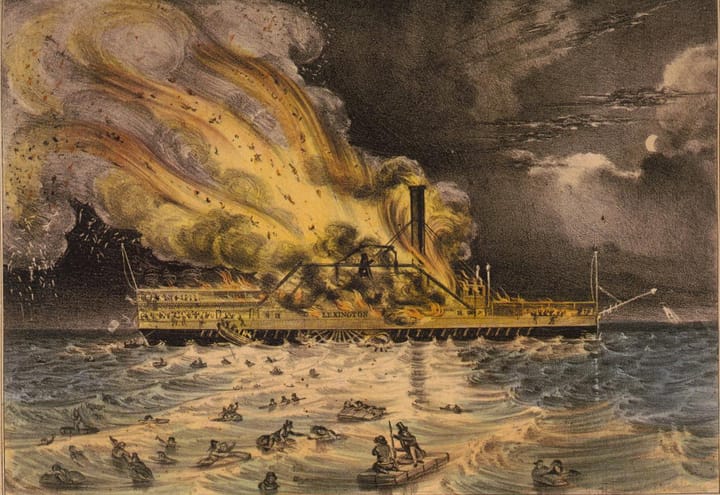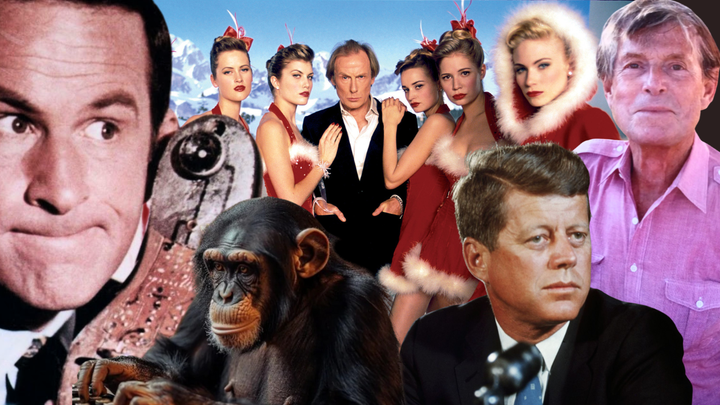Remembering Dr. Jonathan Porter: The flame of historical inspiration.
My thanks and farewell to a great history professor who inspired me, many years ago.

About this same time of year, late August in the year 1991, now more than three decades ago, my career as a historian truly began. On the first Monday of classes at the University of New Mexico I walked into a lecture hall for a history course I’d signed up for called “Revolutionary China,” which was essentially the story of China in the 20th century. The professor was a thin man with kind eyes and bushy hair; he somewhat resembled TV reporter Ted Koppel. His name was Jonathan Porter. The course had caught my eye in the catalog because a few years earlier I’d seen and enjoyed the film The Last Emperor, a biopic about the hard-luck ruler Aisin-Gioro Puyi, who came to the throne as a toddler in 1908 and was deposed a few years later by the first Chinese Revolution. (The film won the Academy Award for Best Picture in 1987). As the classes wore on I found Dr. Porter’s account of China’s tumultuous 20th century far more riveting than Bertolucci’s movie. I quickly became a huge fan of Dr. Porter and took a class from him every single semester remaining in my undergraduate career at UNM. I didn’t know it at the time, but I was also locked in to what would eventually become my career as a historian.
Two weeks ago, on August 10, 2025, I discovered that Dr. Porter had died. It was some time ago; he passed away, likely from cancer, on March 26, 2024, at the age of 86. This was according to his obituary in the Los Alamos Reporter. With a brief exception in 2010 that I’ll talk about in a moment, I was not in contact with Dr. Porter since my graduation from UNM in 1993, though I did think about him. Every couple of months I would Google “Jonathan Porter obituary” to see if anything came up. Each time, when there were no hits, I’d breathe a sigh of relief. Evidently I hadn’t checked in nearly 18 months, and this time I inevitably found it. I knew it was only a matter of time, but it still affected me deeply. I kept thinking about those days back in the early 1990s, those inspiring classes, those nights in my dorm room and the library reading Chinese history. I was struck by a truth I had never really reckoned with before: that the fires of intellect and fascination that others kindle in us are the most unquenchable flames of the mind, and they can burn for a person’s entire life. The sparks that ignite these flames are truly the gifts that great teachers pass on to the future. I’m grateful that it happened in my life, and I’m hoping that my own work as a teacher pays it forward to others.
Jonathan Porter came from an illustrious family. His father was Eliot Porter, the famous nature photographer, who was a contemporary of Ansel Adams. The Porters were Bostonians; Jonathan was born there in 1938, and several members of the family attended Harvard. After World War II Eliot and his second wife Aline Kilham moved their family to New Mexico. Jonathan, then eight, took to it immediately and developed a lifelong passion for the mountains, desert and environment of New Mexico. Dr. Porter’s first degree was, incredibly, in astronomy. That was in 1960, the heady days when rockets were blazing new trails into the future and anything involving outer space was de rigeur. Yet Jonathan found himself fascinated by Chinese history and when he went to graduate school he switched to that discipline. He ultimately earned his Ph.D. from Berkeley in 1971. (Incidentally, Berkeley was also the alma mater of my official academic advisor, Dr. Matthew Dennis, though they attended at different times. What you might call “academic genealogies” are very important to historians).

Dr. Porter struck some students as boring, as all history professors do, but from my own experience I know that his easy soft-spoken manner and meticulous explanations of complex subjects was intended to appeal to those students who really wanted to understand the topic for its own sake. I later got the best piece of teaching advice I ever received from, of all things, a heavy metal magazine back in 1999 or 2000. There was an interview with some relatively obscure metal band whose name I can’t even recall, but one of the band members said something to the effect of, “No matter what show you’re playing, even if there’s only 30 people in a dingy club somewhere, one person in that crowd thinks you’re Led Zeppelin, and that’s the person you play for.” Teaching is a similar proposition. In a lecture hall of 60 people, as Dr. Porter described the Yihetuan Uprising or the Long March or the Lin Biao Incident, perhaps 58 were totally tuned out and watching the clock—in 1991 college kids didn’t yet have cell phones or laptops to distract them—but maybe two were totally eating it up and hanging on every word. I was one of those two. He knew what he was doing.
The interesting part of this story is that, although he made a huge impression on me, I seem to have made little impression on Dr. Porter. I got A’s in his classes for the most part (if I recall correctly), and he did hand me my certificate from the UNM Department of History on a sweltering afternoon in May 1993. I didn’t pursue a career in history at that time and instead went to law school. In 2010, when I was considering returning to graduate school to get an M.A. and possibly Ph.D. in history—after a strange dozen-year interlude in the practice of commercial real estate law—as part of my application process I had to get recommendations from past professors, preferably in the discipline I wanted to study. I reached out to Dr. Porter who was still on faculty at UNM at that time, only a year from retirement. He did write a recommendation but qualified it by saying he didn’t remember me, and merely checked the extant records of my academic performance, then 17 years in the past. It must have been good enough for the University of Oregon, because I got in. The rest is...well, you know the rest.
The premise of the classic 1946 film It’s a Wonderful Life is that each of us has a much greater impact on the world, and in the lives of the people we touch, than most of us know. There’s even a name for this phenomenon, after the main character of the film: the “George Bailey effect.” Dr. Porter seems to have forgotten me pretty quickly after I graduated in the early 1990s, but the inspiration he gave to me helped ignite that intellectual fire that continues to burn today. I didn’t end up focusing on Chinese history specifically in my graduate work, or my public-facing work as a YouTube historian, though I do still have an interest in it. Nonetheless I think there may be a small little bit of Dr. Porter and his teachings in my videos and writings. And—now here’s a comforting thought—he may be, in just a fleeting way, an unseen and unacknowledged presence in my middle school classroom when I begin teaching history again, for the eighth year, next week. While I doubt any of my sixth through eighth graders will notice the ephemeral image of a kindly elderly man with silver and turquoise jewelry sitting in the corner of our classroom, he’ll be there, at least in spirit.

Within a few days of learning of Dr. Porter’s death I decided to bump my next projected historical YouTube video, after the one I'm working on now, out of the lineup and do a video on revolutionary China in the 20th century, as a tribute to him and the things I learned from him.
I thank Dr. Porter deeply for his many decades of wonderful teaching and scholarship. My condolences go out (belatedly) to his family. His intellect, enthusiasm and charm were truly gifts that pay themselves forward. I’m sad he’s gone, but very happy that my life crossed paths with his.
The Value Proposition
Why should you be reading this blog, or receiving it as a newsletter? This is why.
☕ If you appreciate what I do, buy me a virtual coffee from time-to-time to support my work. I know it seems small, but it truly helps.
📖 You could also buy my newest book.
🎓 Like learning? Find out what courses I’m currently offering at my website.
📽 More the visual type? Here is my YouTube channel with tons of free history videos.



Comments ()